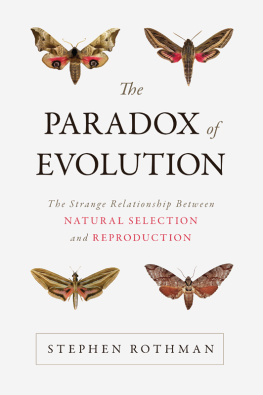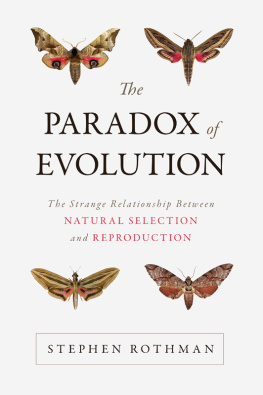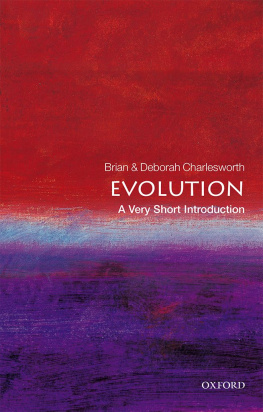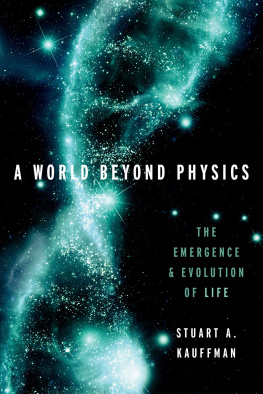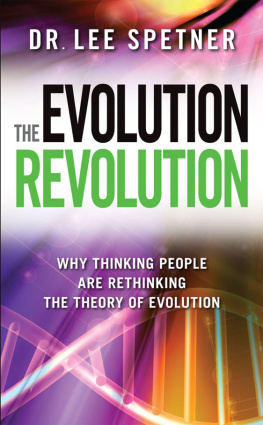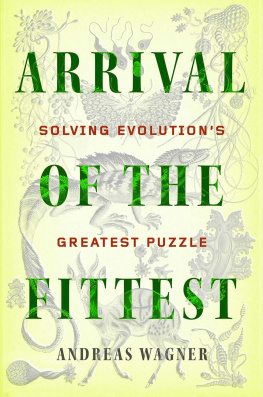
False facts are highly injurious to the progress of science, for they often endure long; but false views, if supported by some evidence, do little harm; and when this is done, one path towards error is closed and the road to truth is often at the same time opened.
Charles Darwin, The Descent of Man, 1871
This is a book about two mysteries, one of nature, another of science. A mystery of nature is of course something that we do not understand about nature. A mystery of science is something unknown or unrevealed about the thinking and methods of its practitioners. Both mysteries have to do with Darwin's theory of evolution by means of natural selection and its relationship to the reproductive mechanisms of life.
The mystery of nature is how reproductive mechanisms evolved. The mystery of science is why there has been so little discussion of the basis for the widespread belief that natural selection is responsible. When so much about Darwin's theory has been and continues to be the subject of far-reaching discussion and vigorous debate in both the scientific and popular literature, why has such an important topic been overlooked? One would have expected it not just to be present but to be prominent. Yet, as best I can tell, it has never been seriously considered, let alone in any depth.
NO DISCUSSION?
But before we go running off to look for an explanation, am I correct? Has the subject really been overlooked? Is there a genuine mystery here or am I simply mistaken? At first glance I appear to be incorrect and in no small measure at that. Without doubt, reproduction has been the subject of discussion in the scientific literature on evolutionsubstantial discussion. Indeed whole fields have been devoted to it.
As Darwin described evolution, it is a play with two equally important and interdependent acts. In the first, individual organisms, alone or in groups, face environmental threats of all sorts. Some survive the challenge, while others succumb. This is survival of the fittest (or fitter) and it is the work of the nonreproductive or somatic features of life. As act one unfolds, we see natural selection working its will, determining the fate of organisms and species.
As dramatic as this is, it is merely the prologue to the second act. In it, we learn of sex and love, of generations to come. It is not about survival of the fittest but the fecundity of the fittest, about the work of reproduction. And so evolution, indeed life itself, is comprised of two key elementssurvival and reproduction or, we might say, food and sex. Evolution requires that organisms both survive to sexual maturity and then reproduce. Natural selection is only the agent of evolution if reproduction produces the next generation. It does not stand on its own. If an organism does not have progeny, it plays no role in evolution. This understanding is central to Darwin's theory and has been considered at some length, and in this sense it can be fairly said that not only has there been a discussion of reproduction; there has been an unmistakable appreciation of its central role in evolution. It has hardly been absent.
It is also understood that the role of reproduction in evolution is not just procreative. Even though Darwin did not know of Mendel's genetic ideas, from his knowledge of animal domestication he understood that reproduction was a critical source of the variety needed for natural selection to work its wonders. In this case, too, its role has not been ignored. To the contrary, it has been a critical concern of both classical and modern genetics. Perhaps the most relevant aspect of genetics has been population or evolutionary
Beyond this, there is a distinctive selection that is associated with reproduction whose purpose is to obtain or choose a mate. Not only did organisms have to survive life's challenges, that is, not only did they have to survive natural selection, but if they did and reached sexual maturity, they became subject to another kind of selection, a sexual selection. As said, if an individual is to play a role in evolution, it has to successfully mate. This is described in Darwin's theory of sexual selection. Although until recently this theory has been widely ignored, a consideration of the manifold ways and byways of obtaining and choosing mates certainly has not.
NATURAL SELECTION AS THE AGENT OF REPRODUCTIVE EVOLUTION
Why then do I say that the subject has been given short shrift? The reason is that nothing I have said is about how the structures, mechanisms, processes, and adaptations of reproduction came into being, how they evolved. A knowledgeable reader might grumble that this has also been considered, at least to the degree necessary. In view of the fact that the theory of evolution by means of natural selection has been the focus of extensive, not to say enduring, discussion, reproductive traits, a subset of life's features, have inescapably been part of that discussion even if they have not been specifically taken into account. If we claim and offer evidence to support the view that natural selection serves as the basis for life's evolution, then both the claim and the evidence apply to life's reproductive features no less than to its somatic features. We do not need to single out the many different characteristics of reproduction to know how they came about.
Confidence in this conclusion is based on three very broad suppositions, though we could just as well call them three well-founded understandings. The first is that there is an identity of kind between life's somatic and reproductive features. However disparate otherwise, they are things of the same sort in physical and chemical terms and as a result their properties in this regard are necessarily of the same general type. The second is that because they are of the same type they came into being as the result of the same agency, and that agency is natural selection. And finally, natural selection applies generally, to all of life's characteristics. There is no basis or foundation for excluding reproductive traits from its agency and consequences.
If these propositions are true, what more is there to consider? Comparing and contrasting the evolution of life's somatic and reproductive features either as a general matter or in detail would serve no purpose. From an evolutionary point of view, whatever the differences, they are inconsequential.
And yet is it acceptable to say that a subject has been fully or even adequately considered, if it is not specifically taken into account, point by point, element by element, instead simply declaring it to be an example of something else, something more general? However reasonable, can we really, at least as a matter of science, rely on these three suppositions to conclude that natural selection is the agency responsible for the evolution of life's reproductive features without considering the particular circumstances of their evolution? Aren't we obliged to address the proposition that natural selection is that agency directly? However easily accommodated and seemingly sound our a priori assumptions may be, in the absence of direct scrutiny, they remain unfounded.
The desire to amalgamate the evolution of the somatic and reproductive features of life under the common guidance of natural selection is certainly understandable, nevertheless, however desirable and however reasonable, a conjecture is not scientific proof. Dating back to Darwin this elision between what is assumed and what is known has taken place. Though Darwin and those who followed understood that reproduction plays its own unique role in evolution, other than in sexual selection, it was thought that the evolution of its features came about in exactly the same way, the consequence of the same forces as the other (somatic) features of living things.
Next page
